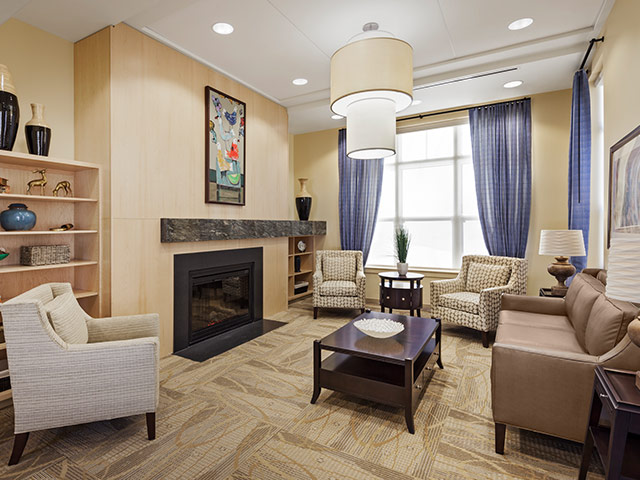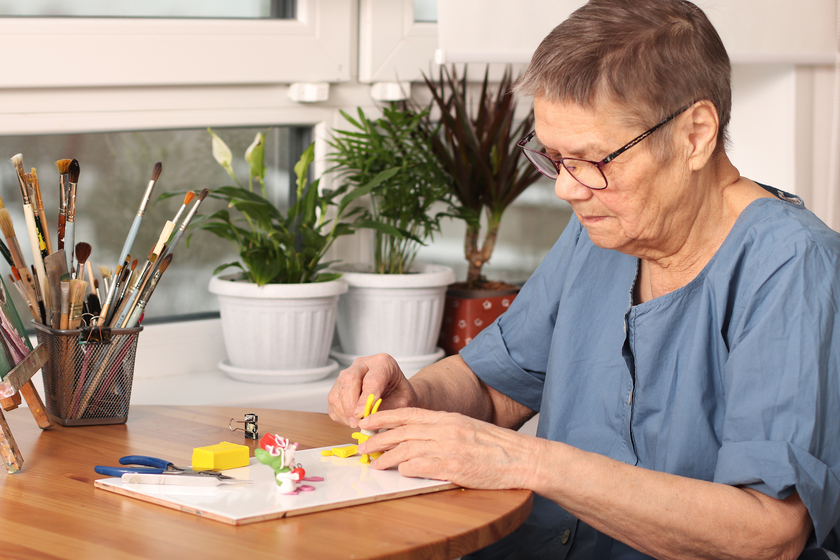Discovering the Value of Memory Care Services in Small Memory Care Residences
Memory care solutions play an essential function in enhancing the lives of people with cognitive impairments. In tiny memory treatment homes, the focus changes to personalized treatment tailored to each resident's one-of-a-kind needs. These intimate settings cultivate much deeper links and a helpful neighborhood. However, the question stays: exactly how do these atmospheres particularly add to the psychological well-being of both citizens and their households? Understanding this vibrant discloses the true worth of specialized memory treatment.
Comprehending Memory Treatment and Its Value
Memory care is an important element in addressing the distinct requirements of individuals with cognitive impairments, such as dementia and Alzheimer's illness. This specialized type of care concentrates on creating a risk-free and helpful atmosphere customized to the obstacles dealt with by these people. Memory care facilities utilize skilled staff who comprehend the intricacies of cognitive decline, providing individualized treatment that promotes self-respect and respect.Activities and routines are developed to stimulate memory retention and cognitive function while making certain safety and security and safety and security. In addition, memory care emphasizes social communication, which can reduce feelings of isolation and boost emotional wellness. By cultivating a structured setting, people can navigate their every day lives with more self-confidence. Understanding the relevance of memory care reveals its role in boosting lifestyle, making it possible for individuals to preserve as much self-reliance as feasible while receiving the assistance they require.

The Advantages of Smaller Sized Memory Care Residences
Smaller sized memory treatment homes use an even more intimate setup that can substantially boost the high quality of care for locals. With fewer homeowners, team members can develop stronger relationships, cultivating depend on and emotional connections. This individualized attention typically results in boosted communication, making it much easier for caregivers to comprehend and fulfill the distinct needs of each homeowner. Furthermore, smaller environments usually minimize stress factors and distractions, advertising a calming environment favorable to memory retention and emotional wellness. The layout of smaller homes typically urges socialization amongst residents, enabling meaningful interactions that can battle sensations of seclusion. In addition, these homes can adjust much more swiftly to adjustments in care requirements, guaranteeing that locals get timely assistance. On the whole, the tailored focus, minimized anxiety, and enhanced social opportunities located in smaller memory care homes produce a caring atmosphere that sustains both cognitive feature and emotional health and wellness
Personalized Care Plans for Person Needs
Customized care plans are crucial in resolving the one-of-a-kind needs of people in memory treatment. These strategies frequently consist of customized assistance approaches that improve daily living and advertise well-being. Additionally, individualized activity involvement helps locals get in touch with their rate of interests, cultivating a sense of purpose and pleasure.
Tailored Assistance Strategies
Recognizing the distinct requirements of each person is basic when developing customized support methods in memory care services. These methods entail developing personalized treatment plans that accommodate the specific needs, preferences, and abilities of residents. By assessing cognitive feature, psychological health, and physical wellness, caretakers can develop efficient interventions that promote convenience and freedom - small memory carehomes Charlotte. This customized approach guarantees that each citizen receives ideal support, enhancing their quality of life. Normal analyses and adjustments to these plans are crucial, as they enable caregivers to react proactively to transforming demands. Additionally, involving household members in the planning process cultivates a joint environment, strengthening the assistance network for people with memory difficulties. Inevitably, tailored support methods are vital for providing reliable and compassionate memory care
Embellished Task Interaction
Creating significant interaction via customized activities is vital in memory care services. Memory treatment homes focus on personalized treatment strategies that deal with the distinct requirements and preferences of each homeowner. These strategies usually include activities tailored to homeowners' passions, capacities, and cognitive degrees, boosting their feeling of purpose and self-respect. By integrating acquainted regimens, pastimes, and social communications, caregivers can stimulate cognitive feature and emotional wellness. Individualized task interaction not only promotes a helpful atmosphere but likewise urges residents to preserve their independence. The active involvement in these customized activities can bring about improved mood and reduced anxiety, reinforcing the importance of a holistic strategy in memory care that identifies each individual's trip and distinct experiences.
Creating an Encouraging Community Environment
While cultivating a helpful community setting is essential for those with memory care needs, it needs deliberate layout and thoughtful interaction. Developing such a setting involves a mix of physical room and interpersonal links. Small memory treatment homes can profit considerably boutique memory care from formats that motivate social interaction, such as open typical areas and relaxing event areas. These layouts advertise a feeling of belonging and safety and security for residents.Moreover, personnel play a crucial function in growing this setting. Educating caretakers to focus on compassion and energetic listening boosts partnerships and fosters trust. On top of that, involving family members in care plans and community tasks can reinforce bonds and produce a network of assistance.
Enhancing Social Interaction and Tasks
Efficient social interaction and activities are vital for enhancing the wellness of residents in memory care homes. These communications not just promote a feeling of belonging yet additionally stimulate cognitive features, which can positively affect memory retention. Small memory care homes commonly offer personalized programs customized to the distinct interests and abilities of each homeowner, enabling even more reliable and significant engagement.Activities such as art therapy, songs sessions, and team video games motivate locals to get in touch with one another, advertising friendships and lowering feelings of seclusion. Additionally, integrating exterior activities, such as gardening or nature walks, can improve state of mind and total health.These improving experiences help locals preserve a sense of purpose and happiness in their lives. By producing an environment that prioritizes social communication, little memory treatment homes substantially contribute to the emotional and emotional wellness of their citizens, ensuring they feel valued and sustained in their journey.
Supporting Family Members Through the Journey
As households navigate the difficulties of looking after a loved one with memory disability, the assistance given by tiny memory care homes becomes crucial. small memory carehomes Charlotte. These homes provide not just customized care for homeowners but also important resources for households. By cultivating a joint setting, tiny memory treatment homes encourage open communication, enabling households to share problems and share experiences.Support groups and educational workshops are usually offered, gearing up families with knowledge and methods to handle the complexities of amnesia. Such campaigns aid decrease sensations of seclusion, as families attach with others facing similar situations.Moreover, little memory treatment homes commonly give individualized updates on homeowners' wellness, reducing households' fears and helping them feel associated with their enjoyed one's everyday life. This all natural approach to sustain not just boosts the high quality of take care of residents but additionally encourages family members throughout their psychological journey
The Impact of Specialized Staff Educating on Treatment High Quality
In small memory treatment homes, the quality of treatment is profoundly influenced by the training and know-how of the team. Specialized training gears up caretakers with necessary abilities to understand and resolve the unique needs of locals with memory problems. Understanding of dementia-related behaviors, reliable communication strategies, and person-centered care strategies boosts the capability of staff to develop a helpful environment.Moreover, trained team are much better prepared to manage tough situations, reducing the chance of disputes and ensuring a calmer atmosphere. This training cultivates a much deeper emotional link in between locals and caretakers, promoting count on and enhancing general well-being. Furthermore, specialized training can lead to greater task contentment amongst caretakers, minimizing turn over prices and offering connection of look after homeowners. Eventually, the investment in personnel education and learning markedly elevates the criterion of treatment, which is crucial for boosting the high quality of life for people in little memory treatment homes.

Frequently Asked Questions
Just how Do I Choose the Right Memory Care Home for My Loved One?
Picking the right memory care home includes reviewing personal requirements, seeing centers, evaluating personnel experience, understanding treatment options, considering location, comparing prices, and seeking referrals. Each element plays a critical function in ensuring optimal treatment.
What Is the Cost Difference In Between Small and Large Memory Treatment Facilities?
The expense distinction between tiny and large memory treatment centers can differ considerably. Normally, little homes might supply more individualized care at a greater per-person price, while bigger facilities frequently offer a lot more amenities at a reduced overall expense.
Just How Typically Can Households Visit Their Enjoyed Ones in Memory Care Homes?
Households can typically see their liked ones in memory care homes as commonly as preferred, with many centers encouraging regular visits to keep links and assistance emotional well-being, though certain plans may differ by home.
What Certain Tasks Are Used in Little Memory Treatment Residences?
Tiny memory care homes commonly provide activities like crafts and arts, music treatment, gardening, exercise courses, and cognitive video games. These tasks are developed to engage locals, promote their minds, and promote social interaction amongst them.
Are There Any Type Of Age Constraints for Homeowners in Memory Care Facilities?
Age constraints for citizens in memory care facilities normally differ by place and individual center plans. Typically, these homes provide to older adults, often calling for locals to be at least 55 or 60 years of ages. In tiny memory treatment homes, the emphasis changes to customized care customized to each local's unique demands. Memory treatment centers utilize qualified staff who recognize the complexities of cognitive decrease, supplying personalized care that advertises self-respect and regimens and respect.activities are created to boost memory retention and cognitive function while making certain safety and security and protection. Smaller memory treatment homes offer a more intimate setup that can substantially enhance the high quality of care for homeowners. Memory treatment homes prioritize customized care plans that cater to the special needs and preferences of each resident. As households browse the challenges of caring for an enjoyed one with memory problems, the support given by small memory care homes becomes necessary.